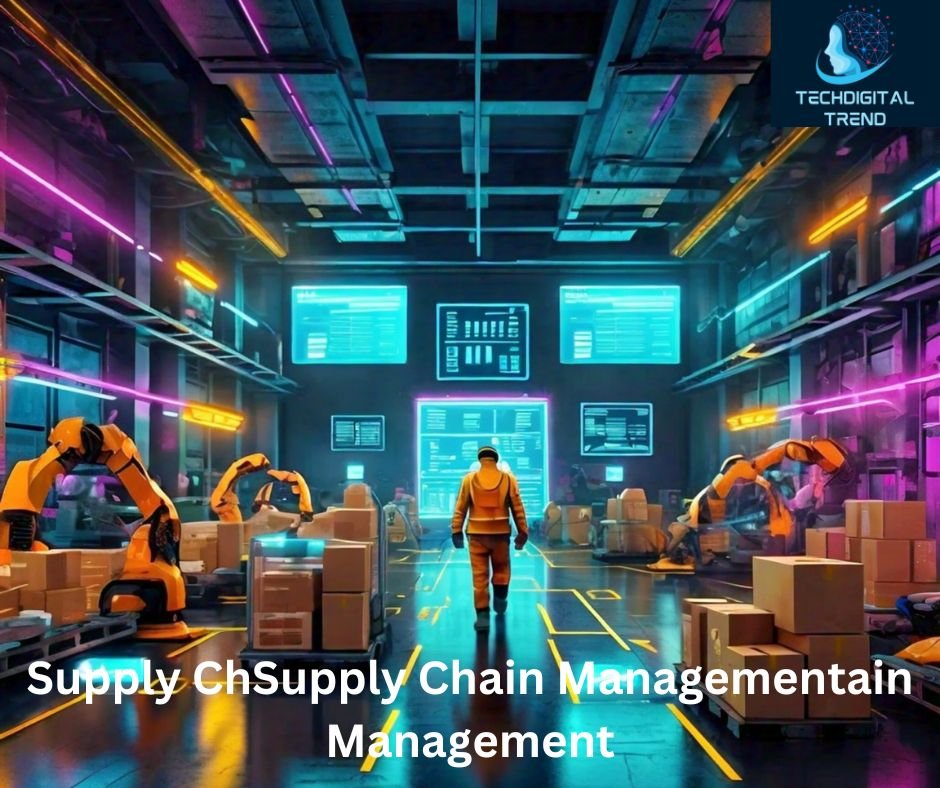Table of Contents
ToggleSupply Chain Management
Transparency, fraud, and inefficiency have been longstanding problems in the supply chain management sector. However, the sector is changing because of the introduction of blockchain technology. We will examine how blockchain is improving supply chain management, lowering fraud, and raising transparency in this post.
What is Blockchain?
Data storage and transfer that is safe, transparent, and impervious to tampering is made possible by blockchain, a decentralized distributed ledger technology. Though its uses go far beyond virtual currency, this is the technology that powers cryptocurrencies like Ethereum and Bitcoin.
How Does Blockchain Work in Supply Chain Management?
Blockchain technology helps supply chain managers to create an unchangeable and transparent record of all transactions, from locating raw materials to delivering completed items. This facilitates real-time tracking and monitoring, lowers fraud, and promotes transparency.
Benefits of Blockchain in Supply Chain Management
Blockchain offers several advantages for supply chain managements. These consist of:
- Increased Transparency: Blockchain technology enables the creation of a transparent and tamper-proof record of transactions, reducing the risk of fraud and errors.
- Improved Traceability: Blockchain technology enables real-time tracking and monitoring of goods, reducing the risk of counterfeiting and fraud.
- Increased Efficiency: Blockchain technology automates many processes, reducing the need for intermediaries and increasing efficiency.
- Reduced Costs: Blockchain technology reduces the need for intermediaries, reducing costs and increasing profitability.
Blockchain Supply Chain Management Solutions
There are many blockchain supply chain management solutions available, including:
- IBM Blockchain: IBM’s blockchain platform enables the creation of secure, transparent, and tamper-proof supply chains.
- Maersk’s TradeLens: Maersk’s TradeLens platform uses blockchain technology to enable real-time tracking and monitoring of goods.
- Walmart’s Food Traceability System: Walmart’s food traceability system uses blockchain technology to enable real-time tracking and monitoring of food products.
Challenges in Supply Chain Management
Supply chain management has been plagued by several challenges, including:
- Lack of Transparency: Supply chains are often complex and opaque, making it difficult to track goods and materials.
- Fraud: Counterfeiting and fraud are significant problems in supply management, resulting in significant financial losses.
- Inefficiency: Supply chains are often inefficient, resulting in delays and increased costs.
- Traceability: Tracking goods and materials in real-time is a significant challenge in supply chain management.
How Blockchain Addresses These Challenges
Blockchain technology addresses these challenges in several ways:
- Transparency: Blockchain technology enables the creation of a transparent and tamper-proof record of transactions.
- Immutable: Blockchain technology enables the creation of an immutable record of transactions, reducing the risk of fraud.
- Real-time Tracking: Blockchain technology enables real-time tracking and monitoring of goods and materials.
- Increased Efficiency: Blockchain technology automates many processes, reducing the need for intermediaries and increasing efficiency.
Case Studies
Several companies have successfully implemented blockchain technology in their supply chain management, including:
- Maersk: Maersk, the world’s largest shipping company, has implemented blockchain technology to enable real-time tracking and monitoring of goods.
- Walmart: Walmart, the world’s largest retailer, has implemented blockchain technology to enable real-time tracking and monitoring of food products.
- Unilever: Unilever, the world’s largest consumer goods company, has implemented blockchain technology to enable real-time tracking and monitoring of goods.
Conclusion
Supply chain management is changing as a result of blockchain technology, which lowers costs and increases efficiency, traceability, and transparency while also boosting transparency. It has a wide range of uses and many advantages. We should anticipate seeing even more creative ideas appear as the sector develops further. Blockchain technology is transforming how businesses manage their supply chains, from lowering counterfeiting to increasing food safety. Blockchain technology is poised to revolutionize chain management, benefiting manufacturers, logistics providers, and consumers alike. Learn more about the possibilities of blockchain technology for supply chain management to stay ahead of the curve.
Future of Blockchain in Supply Chain Management
The future of blockchain in supply chain management is promising, with several trends emerging, including:
- Increased Adoption: Blockchain technology will become more widely adopted in supply chain management, as companies seek to increase transparency and reduce fraud.
- Improved Scalability: Blockchain technology will become more scalable, enabling it to handle larger volumes of transactions.
- Increased Collaboration: Companies will collaborate more closely to develop blockchain-based supply management solutions.
Open this link: Tap to here















